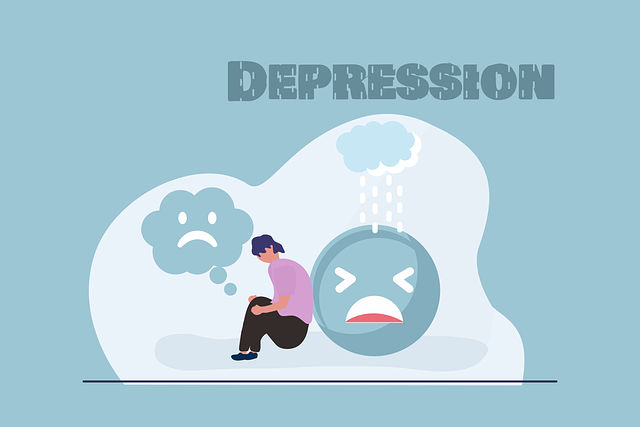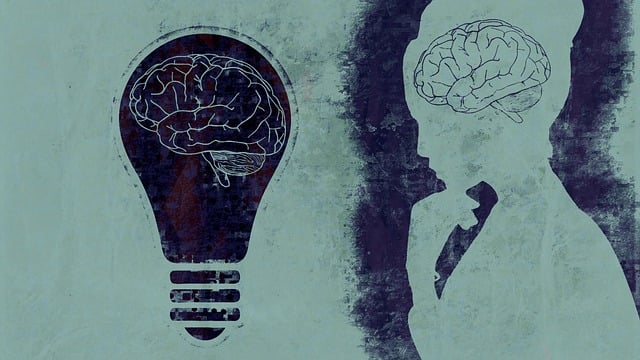Parker Online Therapy focuses on risk assessment as a key element of its digital therapy approach, using structured tools and self-awareness exercises to create safe, tailored environments for clients. Regular assessments empower clients to manage emotional distress and prevent mental health issues, while dynamic treatment plans based on these insights lead to positive outcomes. By proactively identifying vulnerabilities and potential harms, including past traumas, social anxieties, self-harm, suicide ideation, and substance abuse, therapists develop strategies to minimize risk. This includes culturally sensitive harm minimization plans, Mental Health Policy Analysis, burnout prevention for healthcare providers, and ongoing evaluation of client progress to refine healing processes and enhance safety.
“In the realm of online therapy, ensuring patient safety through comprehensive risk assessment and harm minimization planning is paramount. This article, from the perspective of Parker Online Therapy, delves into the critical process of identifying potential risks and vulnerabilities in virtual therapeutic settings. We explore strategies for developing robust minimization plans, emphasizing implementation and continuous evaluation. By understanding these key aspects, therapists can enhance the safety and effectiveness of online therapy, fostering a secure environment for vulnerable clients.”
- Understanding Risk Assessment in Online Therapy: A Parker Online Therapy Perspective
- Identifying Potential Harms and Vulnerabilities
- Developing a Comprehensive Minimization Plan
- Implementation and Continuous Evaluation Strategies
Understanding Risk Assessment in Online Therapy: A Parker Online Therapy Perspective

At Parker Online Therapy, we believe that a comprehensive understanding of risk assessment is pivotal to delivering effective therapy in our digital platform. Risk assessment involves identifying and evaluating potential hazards or risks associated with an individual’s mental health and online therapeutic journey. It’s not merely about identifying threats but also understanding vulnerabilities and the likelihood of harm. Our therapists employ structured tools and self-awareness exercises tailored for online settings, ensuring a safe and supportive environment.
Through regular risk assessments, we can proactively address issues such as acute emotional distress or exacerbation of existing conditions like depression prevention. By integrating confidence-boosting strategies into our approach, we empower clients to navigate challenges effectively. This dynamic process allows us to adjust treatment plans accordingly, fostering continuous improvement and positive outcomes in online therapy sessions, specific to each client’s unique needs.
Identifying Potential Harms and Vulnerabilities

Identifying potential harms and vulnerabilities is a pivotal step in risk assessment for any therapeutic or coaching practice, including Parker Online Therapy. This process involves a thorough examination of various factors that could negatively impact clients’ mental wellness and emotional well-being. By recognizing these risks early on, therapists and coaches can develop effective strategies to minimize harm.
One way to achieve this is by considering the unique challenges each client faces, such as past traumas, social anxieties, or specific phobias. Additionally, examining the potential for self-harm, suicide ideation, or substance abuse is essential. Through comprehensive assessments, including detailed intake forms and initial consultation sessions, Parker Online Therapy aims to uncover these vulnerabilities, fostering a safe space for clients to explore their issues openly. This proactive approach ensures that therapy and coaching programs are tailored to address specific needs, promoting positive thinking and emotional well-being development while navigating potential risks.
Developing a Comprehensive Minimization Plan

Developing a comprehensive harm minimization plan is an integral part of responsible risk assessment in mental healthcare practices, such as those offered by Parker Online Therapy. This involves a systematic approach to identifying potential risks and implementing strategies to mitigate their impact. The plan should be tailored to address specific challenges within the context of cultural sensitivity in mental healthcare practice, ensuring that diverse populations receive appropriate care.
By integrating Mental Health Policy Analysis and Advocacy into the risk assessment process, professionals can stay informed about emerging research, guidelines, and best practices. This knowledge enables them to adapt their minimization plans accordingly, addressing not only individual risks but also systemic issues contributing to harm. Additionally, focusing on Burnout Prevention Strategies for Healthcare Providers is crucial, as it directly impacts the quality of care and reduces the risk of errors or adverse events resulting from provider fatigue.
Implementation and Continuous Evaluation Strategies

Implementing risk assessment strategies is a dynamic process that requires ongoing evaluation and adaptation. At the core of this approach lies Parker Online Therapy’s commitment to integrating evidence-based practices into therapy sessions. By regularly reviewing and updating risk management plans, mental health professionals can ensure they are equipped to handle evolving client needs. Continuous evaluation involves meticulously monitoring client progress, assessing treatment effectiveness, and identifying areas for improvement within the therapeutic framework.
This proactive approach to risk minimization goes beyond initial Risk Management Planning for Mental Health Professionals; it encompasses the ongoing refinement of emotional healing processes. Through regular check-ins, structured assessments, and collaborative discussions with clients, therapists can identify potential triggers or escalating issues early on. Such strategies not only enhance safety but also foster a deeper connection between therapist and client, facilitating more effective Social Skills Training and overall therapeutic outcomes.
Parker Online Therapy emphasizes the crucial role of risk assessment and harm minimization planning in ensuring safe and effective digital therapy. By understanding the unique challenges of online therapy, identifying potential harms, and developing comprehensive minimization strategies, therapists can enhance client outcomes and maintain ethical standards. Continuous evaluation is key to staying vigilant and adapting plans as needed, ultimately fostering a robust and responsible therapeutic environment within the Parker Online Therapy framework.














